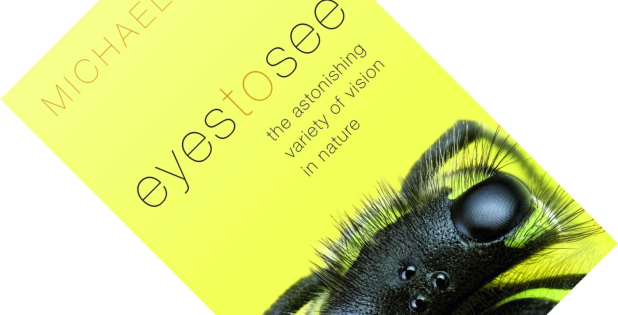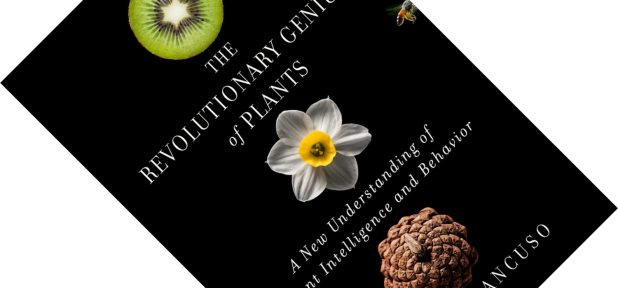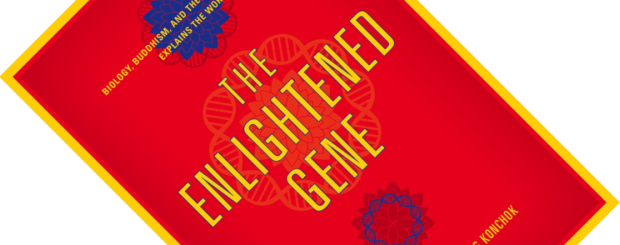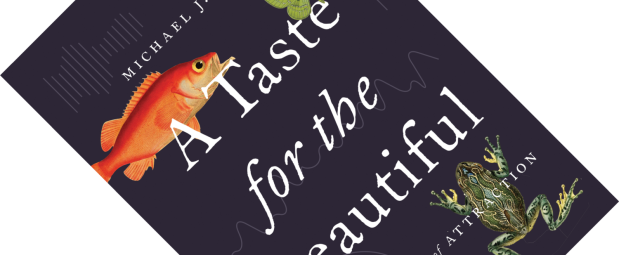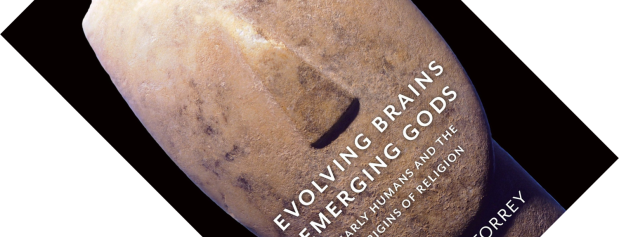I spy, I spy with my little eye… humans are visually oriented creatures and eyes are fascinating organs. Michael Land, an emeritus (i.e. retired) professor in neurobiology at the University of Sussex, is a world expert on eyes, having studied vision for over 50 years. Next to hundreds of papers, he co-authored the textbook Animal Eyes, which was published in a second edition in 2012, and the short primer The Eye: A Very Short Introduction. Eyes to See is his opportunity to reflect on a long career and simultaneously showcase the astonishing variety of vision, as the book’s subtitle would have it.
neurobiology
Book review – The Revolutionary Genius of Plants: A New Understanding of Plant Intelligence and Behavior
In an earlier review, I said that botany was never my greatest love. With The Revolutionary Genius of Plants, Italian plant neurobiologist Stefano Mancuso does a very good job of changing my mind. In the preface, he implores readers to imagine what it is like to be a plant, unable to escape predators. How can you survive this onslaught? The answer: by becoming virtually indestructible. And the way plants do this is by having a body plan that is almost the inverse of animals. There was something so powerful about Mancuso’s writing here that he instantly drew me in.
Book review – The Enlightened Gene: Biology, Buddhism, and the Convergence That Explains the World
I sometimes wonder whether I am a closet Buddhist. Now, I will be the first to admit that I know next to nothing about Buddhism, but what little I have encountered often strikes a chord with me. The Enlightened Gene shows there might be a good reason for this. This book chronicles a most unlikely project: the Emory-Tibet Science Initiative. On the invitation of the Dalai Lama no less (!), Emory University has developed a science curriculum to be taught to Tibetan monks and nuns in exile in India. Spearheaded by professor Arri Eisen and in close collaboration with monk Geshe Yungdrung Konchok, the aim is to integrate modern science (focusing on physics and life sciences, especially neuroscience) into their monastic curriculum.
Book review – A Taste for the Beautiful: The Evolution of Attraction
Here is a strange question: does the sight of a peacock’s tail make you sick? Well, it did have this effect on Charles Darwin. The reason was perhaps more cerebral than anything else. With A Taste for the Beautiful: The Evolution of Attraction, professor in animal behaviour Michael J. Ryan gives a superbly readable and accessible account of his and other’s studies that address how sexual beauty comes about, and why we see such a bewildering diversity of traits used in mate choice.
Book review – What It’s Like to Be a Dog: And Other Adventures in Animal Neuroscience
Do you have a dog? I grew up surrounded by Newfoundlanders. Ever wondered what they are thinking? Whether they think at all? You’d be forgiven for thinking that What It’s Like to Be a Dog is another book for dog lovers and, in part, it is. But don’t let the title mislead you, this book is primarily a popular account of ongoing developments in animal neuroscience, specifically on what scanning mammal brains using magnetic resonance imaging (MRI) can tell us about our shared similarities.
Book review – Evolving Brains, Emerging Gods: Early Humans and the Origins of Religion
As mentioned previously in my review of Barbara King’s Evolving God, religion is a pervasive phenomenon, and many scholars have put forward explanations of how, when, and why it arose. The arguments King put forth did not convince me that religion is anything more than a by-product of our evolution. Apparently, so did Darwin. Though believers often like to point out Darwin was a Christian too, he struggled to reconcile the two and ultimately lost his faith. American psychiatrist E. Fuller Torrey gracefully acknowledges this intellectual heritage and here updates this idea, putting forth the convincing argument that religion arose as a by-product of brain evolution.
Book review – Why We Sleep: The New Science of Sleep and Dreams
The Chernobyl disaster. The stranding of the Exxon Valdez. Car crashes. Suicide. Cancer. Heart attacks. Alzheimer’s disease. What does this list of calamities have in common?
Sleep, or rather a lack thereof, has either caused, or greatly increases the risk of this rather arbitrary and short list. Many more unpleasant things can be added to it. Neuroscientist Matthew Walker is a man on a mission: to impress upon you the importance of sufficient sleep. Why We Sleep is a book that is sure to make you lose some sleep, seeing that it is both fascinating and extremely well-written, but also deeply disturbing in showing the damage we inflict upon ourselves by cutting short our sleep. And, hopefully, it then proceeds to be a book that will make you get more sleep. This is the most important and influential book I have read this year.

